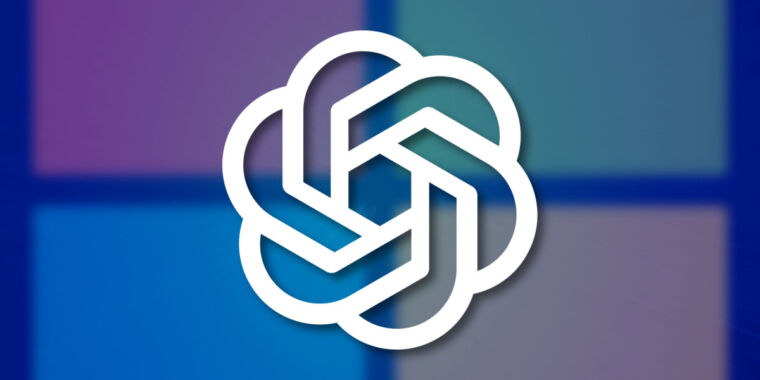Benji Edwards / OpenAI / Microsoft
Microsoft has withdrawn from its non-voting observer role on OpenAI’s board of directors, and Apple has also opted not to take a similar position, Axios and the Financial Times reported. The ChatGPT maker will not have board representation but will instead update business partners and investors through regular meetings. The move comes as EU and US regulators step up scrutiny of big tech companies’ investments in AI startups over concerns that it will stifle competition.
As reported by Axios, Microsoft deputy general counsel Keith Dolliver wrote to OpenAI on Tuesday, saying the tech giant’s board role is “no longer necessary” because the newly created board has made “significant progress.”Microsoft accepted a non-voting role on OpenAI’s board in November following the firing and reinstatement of OpenAI CEO Sam Altman.
Last week, Bloomberg reported that Apple’s Phil Schiller, who heads the App Store and Apple Events, could join OpenAI’s board as an observer as part of the AI deal. But the Financial Times reported, citing a person with direct knowledge of the matter, that Apple will not take such a position. Apple did not immediately respond to our request for comment.
An OpenAI spokesperson told the Financial Times that instead of serving as an observer on the board, the group will hold regular meetings with partners such as Microsoft and Apple, as well as investors Thrive Capital and Khosla Ventures. The decision is part of a “new approach to informing and engaging with key strategic partners” from Sarah Friar, who became OpenAI’s first chief financial officer last month.
OpenAI’s current eight-person board of directors includes Altman, former U.S. Treasury Secretary Larry Summers, former Bill & Melinda Gates Foundation CEO Sue Desmond-Hellmann, former NSA Director Paul M. Nakasone, former Sony America President Nicole Seligman, Quora CEO Adam D’Angelo, and Instacart CEO Fiji Simo, and is chaired by former Salesforce co-CEO Bret Taylor.
Regulatory pressures grow
Microsoft remains a significant financial and technical resource for OpenAI, having invested more than $10 billion in the company since the beginning of 2023. The partnership gives Microsoft early access to leading generative AI models (although its long-term value remains to be seen) and provides OpenAI with Microsoft’s computing power to power both the training and running of new AI models and services like ChatGPT.
While no sources have yet officially linked the Microsoft board resignation (and Apple’s change of course regarding a possible OpenAI board seat) to regulatory scrutiny, it is unlikely to be a coincidence: US and European regulators are concerned that the outsized influence of large tech companies over fast-growing AI startups could lead them to unfairly exclude competitors and establish de facto monopolies in key technologies, stifling smaller rivals.
In June, the FTC began investigating investments by major tech companies (such as Microsoft, Amazon, and Google) in generative AI startups, while the European Commission also announced it was considering a possible antitrust investigation into Microsoft’s partnership with OpenAI after deciding not to proceed with an investigation under merger control rules.
As the Financial Times points out, Microsoft’s financial ties run deep with OpenAI, but ChatGPT’s developers said: “While our partnership with Microsoft involves billions of dollars of investment, OpenAI remains a fully independent company managed by OpenAI Nonprofit.”


